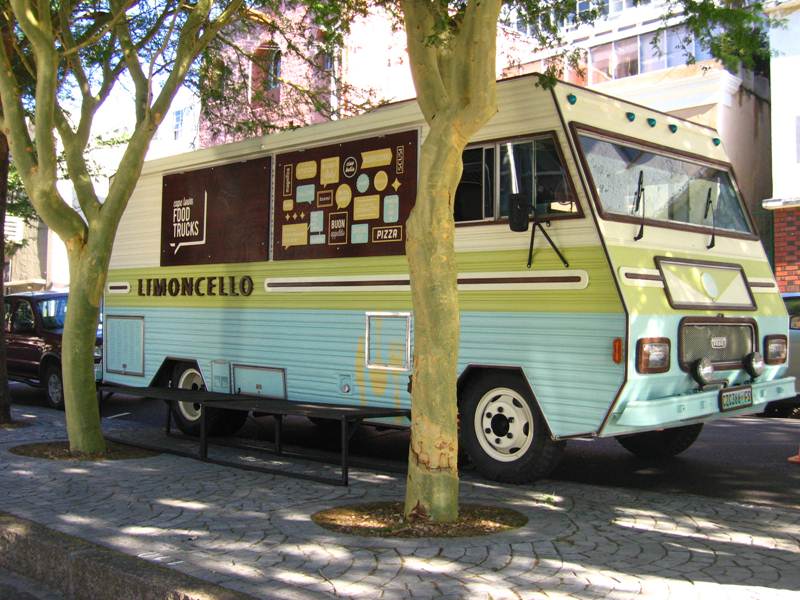It’s not new, far from it. For people of a certain age, it harks back to happy times, to times of ice-cream trucks and weekly visits from the milk van. Food Trucks existed well before the turn of the century but it’s not until 2008 that they started to enter the mainstream… again. Since then, the food truck phenomenon has gone from strength to strength globally, its popularity fuelled by the upsurgeance of an unlikely bedfellow, social media.
Luca Castiglione, third generation chef from Naples and co-owner of Cape Town Food Trucks, says that food trucks are one of the hottest trends in the restaurant industry. “Food trucks are huge in the States; Cape Town offers the perfect venue to try out the concept here.”
Fine dining from the side of a truck hardly sounds appetising but Cape Town Food Trucks, is set to make this international super trend commonplace on the streets of Cape Town and South Africa. “Our custom designed Limoncello’s truck is the first step, it will help tremendously in shifting the perception that haute cuisine is available from a food truck. We have paid particular attention to the appearance of the truck, its retro lines and colours are certain to appeal to trendsetters. Our food has been sourced from the best local producers – it’s gourmet street food,” he says.
Castiglione plans to bring authentic Italian food to the best spots in Cape Town with Limoncello, named after his well-known family friendly restaurant in Gardens, Cape Town and the first in a fleet of planned food trucks.
Food Trucks: Recession proof
Castiglione moves on to say that food trucking only really started to grow explosively as the economy started to take a dive. “Restaurants are incredibly expensive to launch and to run. Food trucks on the other hand, are not only more affordable but also risk averse – the location can change daily, hourly if it needs to – it’s like fishing, cast where the fish are biting. Food Trucks are the perfect way for budding restaurateurs to get a feel for the game too, at a fraction of the price. ”

The father of two says that social media platforms including Facebook but predominantly Twitter, have played a pivotal role in the success of food trucks abroad by making them more accessible. He says they also create a sense of community and shared experience.
Food Trucks: The concept
Cape Town Food Trucks provides selected bricks-and-mortar fine dining establishments with a mobile counterpart that will initially cater to local Capetonians and tourists alike. Each truck will be made with a unique customised design, bringing an artisanal touch to mobile vending. The concept is simple: good quality food, stylishly and consistently provided at convenient locations across Cape Town.
The truck operates on the principle that it appears regularly at locations where quality food is needed, this includes big festivals, weddings, Bar Mitzvahs, film sets, birthday and community street parties. For open events, it announces its location using social media platforms such as Twitter.

“An online community or clientele is just as powerful as a real world one, if not more so. With more than a million registered Twitter users in South Africa, and with Cape Town being one of the most active cities for Tweeters, I am certain that Twitter will do the same for food trucking in South Africa,” he says.
If table bookings aren’t your forte, dine alfresco with Cape Town Food Trucks. For further information visit www.capetownfoodtrucks.co.za, follow the regularly updated locations on Twitter, @ctfoodtrucks or like the Facebook page, Cape Town Food Trucks.

